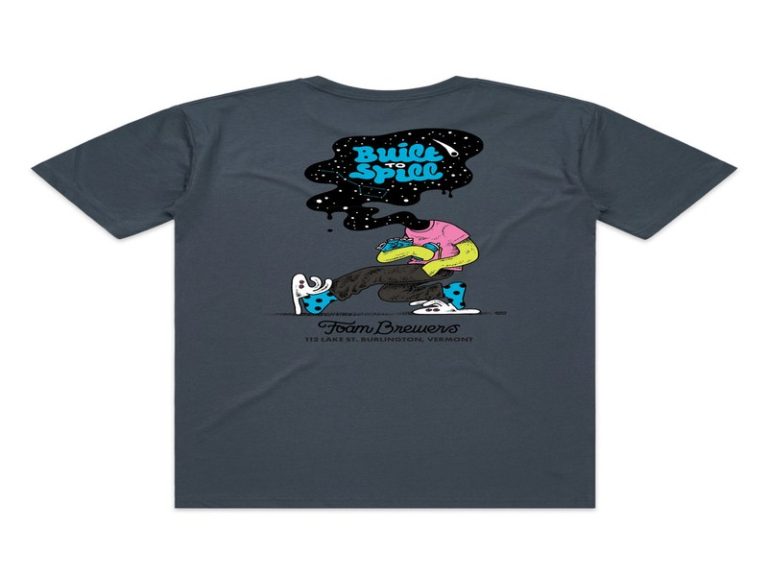Eight New Year’s resolutions you might just stick to 1. Get to grips with new tools No, we don’t mean that cordless drill you got for Christmas. We’re talking about a set of bite-sized visualisation exercises, which can transform your hang-ups into boundless new year confidence, courage and creativity. The Tools were devised by LA-based psychotherapists Phil Stutz and Barry Michaels, whose client lists read like a who’s-who of the Hollywood Hall of Fame. Although their methods have been around for a while, they’ve gained new prominence through actor Jonah Hill’s endearing Netflix documentary, Stutz — part film, part therapy session. “A tool is something that can change your inner state immediately in real time,” Stutz tells Hill in the doc. “It takes an experience that is normally unpleasant and turns it into an opportunity.” The great thing is, you don’t need to fly to LA and shell out for a therapy session to use them — Stutz and Michaels give away a bunch of tools for free on their site. If you’re prone to procrastination, well — there’s a tool, or several, for that. If you feel like you need an extra boost of resilience and hopefulness, tap into The Mother. Or give Grateful Flow a go to address obsessive worrying and negative thoughts.
2. Start a journal Putting the toolkit aside for one moment, Stutz is also a fan of journaling. “Writing is really a magical thing — you enhance your relationship with yourself by writing,” he says in the documentary. “It’s like a mirror, it reflects what’s going on in your unconscious.” Psychologist and wellbeing coach Lee Chambers — one of Marie Claire magazine’s 2022 ‘future shapers’ — says keeping a journal is a chance to accept how we feel. “Very rarely in our busy lives do we stop and express what might potentially be our deepest thoughts and feelings, and — as we write them — have time to process them,” he says. Writing is a magical thing — you enhance your relationship with yourself by writing Chambers suggests there’s no right or wrong way to journal, and cautions against leaping into a rigid regime of writing daily. Instead, show yourself some compassion. “You have to find a medium that resonates with you,” he says. “One of the benefits of journaling is when you experiment to find out what works for you and, in that process, you reach an understanding of yourself. “If you ever get to the point where it becomes a habitualised, ‘I have to do it’ process, it’s going to be less impactful. The benefit is in the moment — not in doing it relentlessly.”
3. Stop stressing over sleep What you do when you wake up first thing impacts how you sleep later. Image: Alexandra Gorn Fretting over your nightly 40 winks? Perhaps you don’t need every single one of them after all. Prof Russell Foster is on a mission to silence the “sergeant majors of sleep” who swear by an uninterrupted eight hours of shut-eye. “The perfect night of sleep varies enormously from person to person,” he explains. “The key thing is working out how much we need individually — it could be as few as six hours, or as many as 10-and-a-half.” Foster, who heads up the University of Oxford’s Sleep and Circadian Neuroscience Institute, believes one of the biggest enemies of sleep is — ironically — anxiety about not getting enough of it. “Most people don’t have a sleep problem, they have an anxiety or stress problem,” he says. “Also, people think they don’t have any control over sleep, but in fact it’s an incredibly dynamic behavior. We can do a lot to change it.” Circadian neuroscience is all about what, quite literally, makes us tick. To the layman, it’s the study of our 24-hour body clock, and the secret to setting it for optimum sleep mode lies, paradoxically, in what we do right after we wake up. “For most individuals, that means getting as much bright, morning light as possible to set the clock, which will then regulate the sleep-wake cycle,” Foster says. For more top sleep and body clock tips from Foster, check out his bestselling book, Life Time.
4. Chill out, literally Experts reckon a cold dip can do wonders for the mind and body. Image: Vladimir Fedotov Wild swimming has boomed in recent years, but a growing body of dippers are getting their health kicks from wintery waters. Cold water aficionado Dr Mark Harper has spent his career as a consultant anaesthetist researching ways to keep patients warm during surgery. But in his recent book, Chill — The Cold Water Swim Cure, he turns a scientific eye on winter swimming, and provides evidence of its power to heal both body and mind. The starting point for Harper was the realization that our bodily reactions to the stresses of surgery and cold water are identical. “Exposing yourself to cold builds your strength,” he explains. “When you adapt to cold water, you reduce that stress response.” Exposing yourself to cold builds your strength Harper says the anxieties of modern life coupled with shoddy diets mean many of us carry increased levels of baseline inflammation in our bodies. “By adapting to cold you reduce that baseline, you have less inflammation and that is the background to conditions which I think it has some effect on — things like migraine, type two diabetes and fibromyalgia. They’re all inflammatory conditions.” Cold water is also known to deliver a feel-good, endorphin boost. If you’re thinking of taking the plunge, Harper recommends waiting until the spring and starting slow, dipping once a week for six weeks to acclimatize. “Don’t stay in too long, you will not get any more benefit by staying longer than two or three minutes,” he cautions. Better still sign up to a course with one of his Chill UK hubs.
5. Set manageable fitness goals Bodycoach Joe Wicks hardly needs any introduction — some three million people a day tuned into his lockdown workouts on Youtube — but he gets a mention here for his ‘First Steps to Fitness’ program, ideal if you’re starting out or returning from a lay-off. The Wicks approach means your fitness sessions are never going to take more than 15 minutes out of your day, and there’s no pricey gym membership or special equipment required. “We know that exercise changes our body but it also really boosts our mental health and changes the way we feel about ourselves,” says Wicks. Equally, if the idea of regular weekday workouts fills you with dread, don’t sweat it — at least not until the weekend. A decade-long study by researchers in Brazil tracking 350,000 people concluded that cramming exercise into one or two weekend sessions is just as good for you as spreading it over the week. The World Health Organization recommends adults get at least 150 minutes of moderate-intensity activity — a walk or gentle bike ride — each week. For more vigorous exercise like running or swimming, it’s just 75 minutes.
6. Go with your gut Keeping your gut happy can help improve your mood. Image: Nordwood Themes Curious about kimchi? You should be — it could be the key to a happier you. Research is unraveling the complex relationship between the microbiome — the bacteria, fungi and viruses in our bowels and bodily tissues — and our state of mind. For example, one study found that adding a Bifidobacterium probiotic into the diet boosted volunteers’ memories and reduced stress, proof that maintaining happy, healthy bugs puts a smile on your face. Health guru and professor of genetics Tim Spector detailed the microbiome’s importance for all-round wellbeing in his groundbreaking 2015 book The Diet Myth. His 2020 follow-up Spoon-Fed discussed how gut microbes impact mental health. He cautions that microbiomes are unique to the individual, however as a general rule of thumb, eating a varied diet of plants — including seeds, nuts, herbs, and spices — while avoiding ultra-processed foods is going to set you on the right course. Fermented foods like kimchi, sauerkraut, and kefir are also great for delivering a bacterial gut boost. “A diverse Mediterranean-style diet with a range of fermented foods to keep your microbes happy is looking like the best present you can offer your brain,” Spector writes. Find out more on his gut plan website…

















